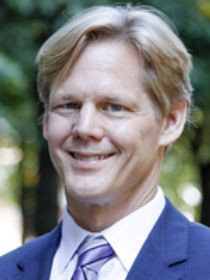
Christopher Uggen
Connect with Christopher
About Christopher
Uggen studies crime, law, and deviance, and is best known for two lines of research: (1) employment and crime; and (2) felon voting restrictions. Uggen’s research interests include punishment and reentry, harassment and discrimination, citizenship and exclusion, and, most recently, health inequalities. With Doug Hartmann, he edits and publishes The Society Pages, which aims to bring social science to broader public visibility and influence. Uggen also does legislative testimony and expert witness work on justice issues, and has served on the Minnesota Department of Corrections Human Subjects Committee.
Contributions
Lessons from Rwanda's Quest for a Just Response to Genocide
What Americans Believe about Voting Rights for People Convicted of Felony Crimes
In the News
Publications
Introduces students to the social science of gender through highlighting new and emerging work. Concludes with a discussion guide and group activities section that challenges readers to draw connections between the chapters, think more deeply and critically about culture and social life, and link to ongoing conversations and interactive posts online.